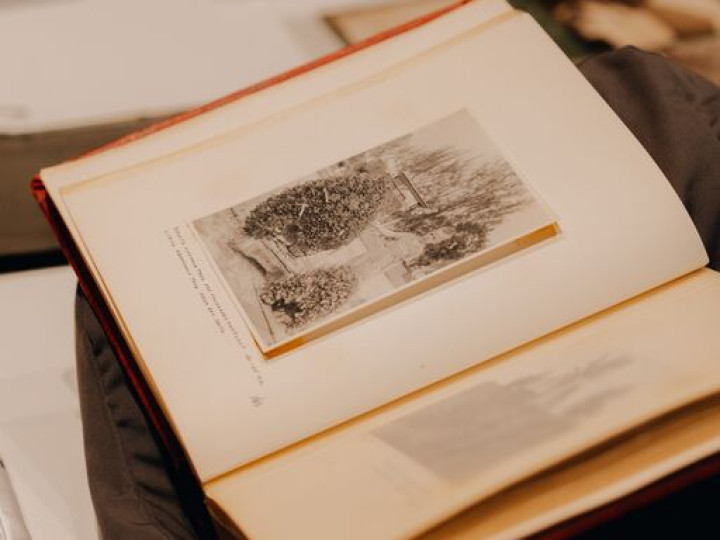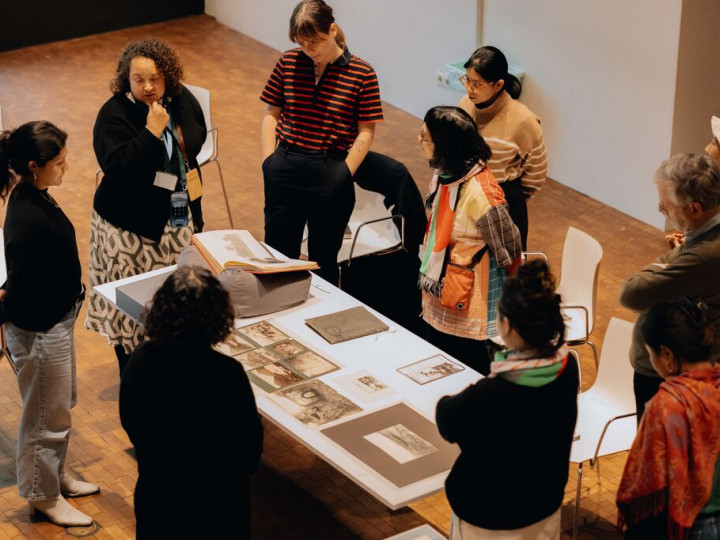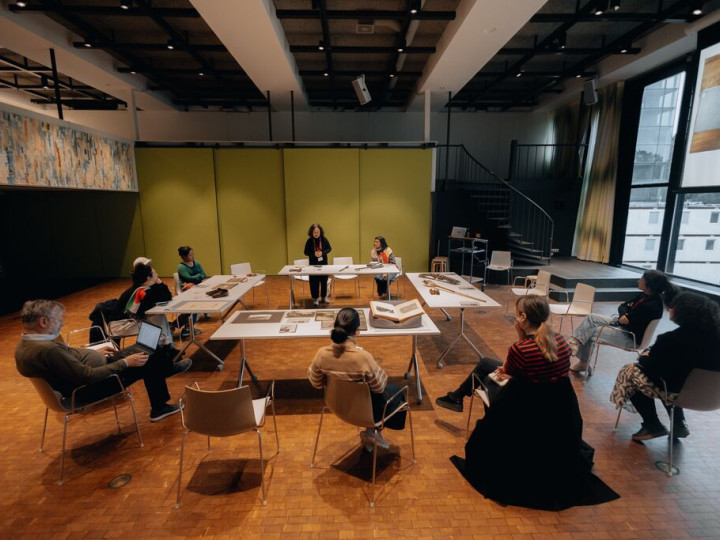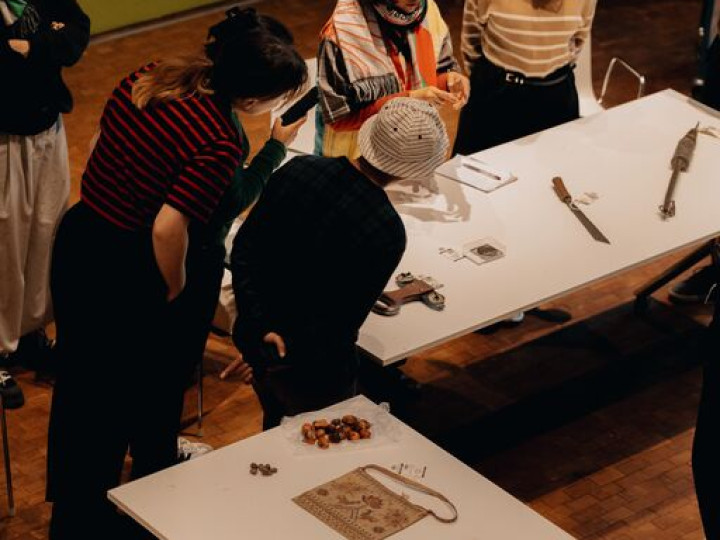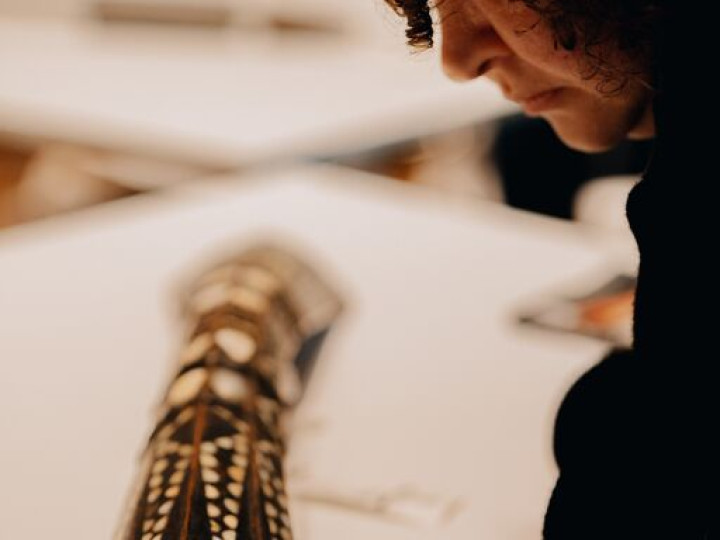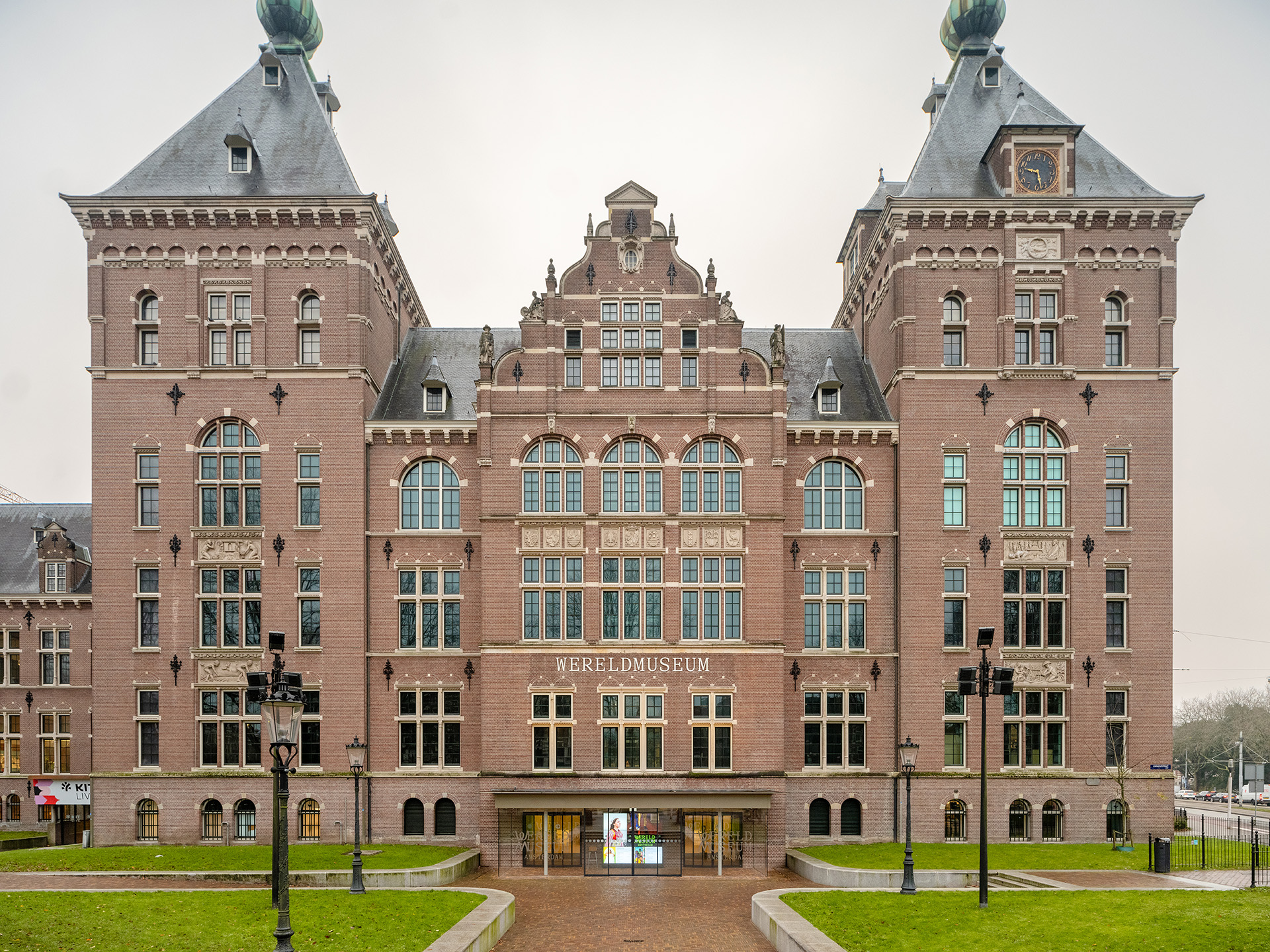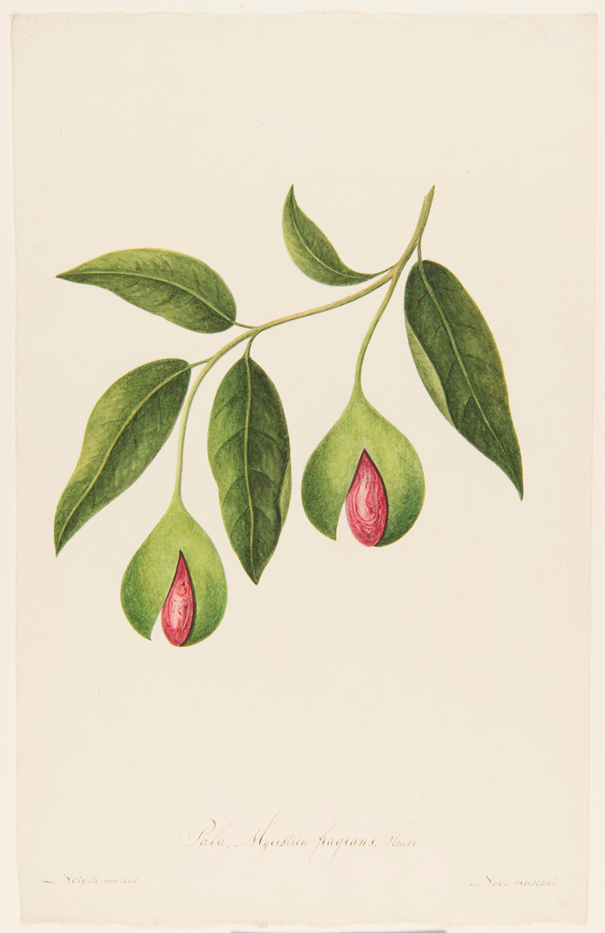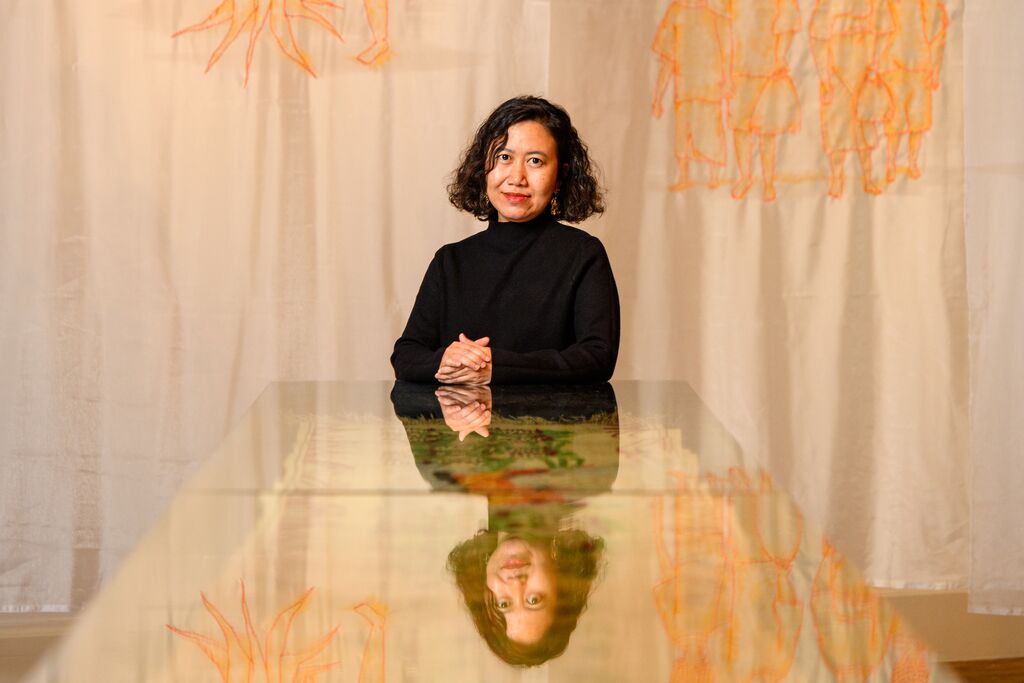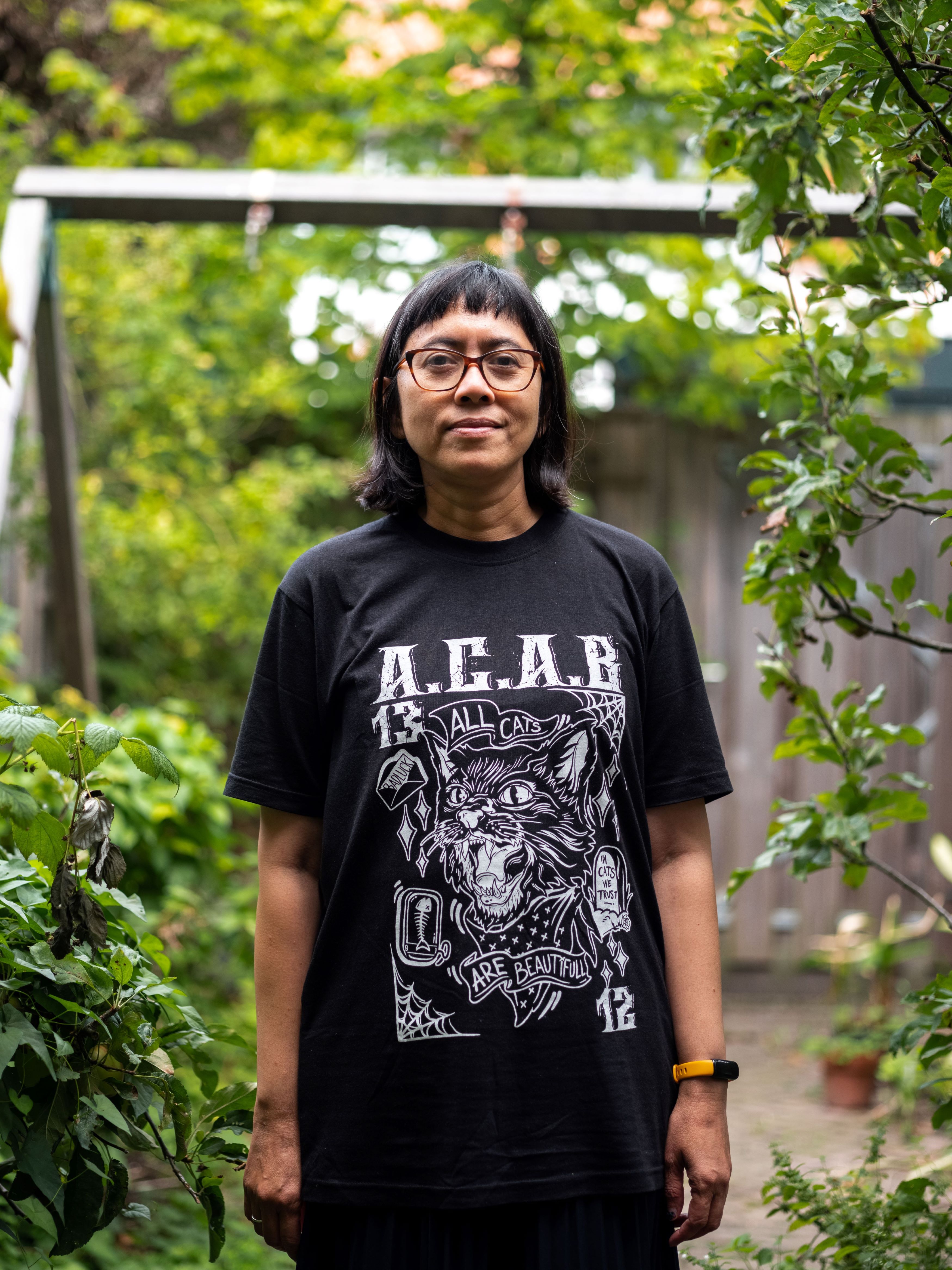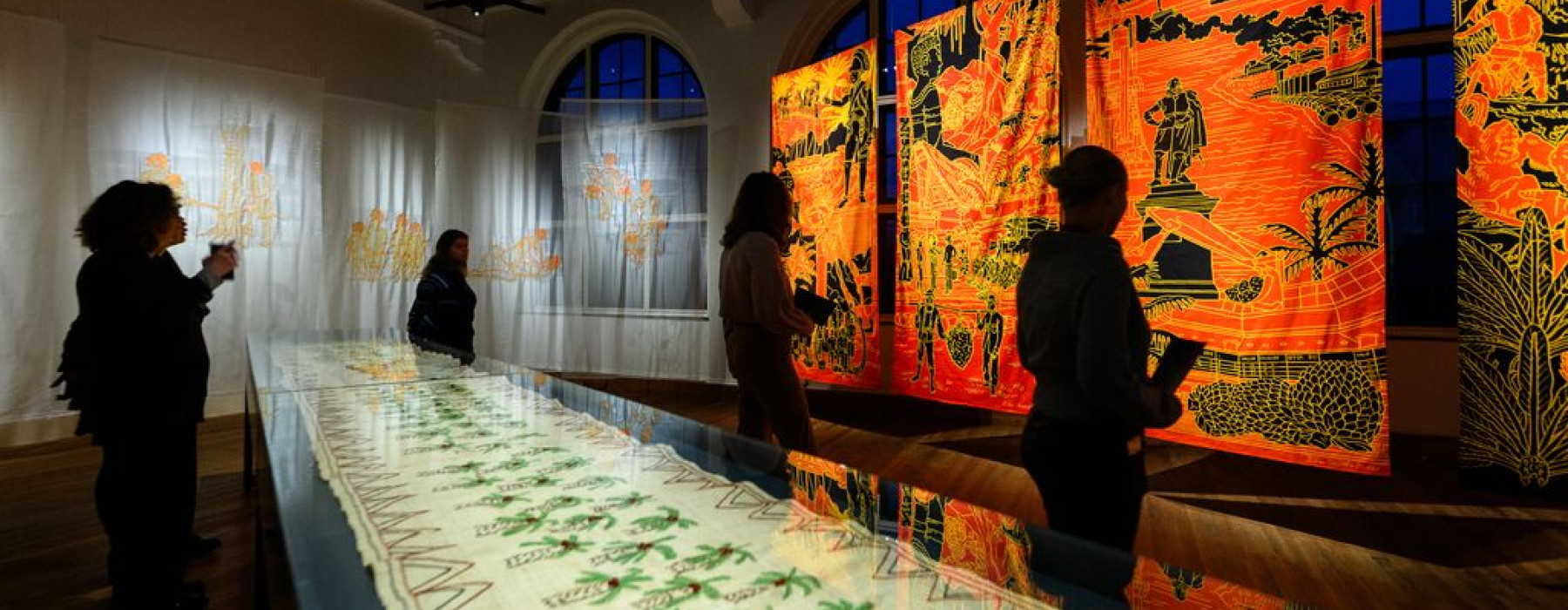
Please note that no ticket is required for this tour. Please bring a raincoat and/or an umbrella in case of rainy weather. Hot chocolate will be provided.
14.00: Meet at entrance of Wereldmuseum Amsterdam: Linnaeusstraat 2, 1092 CK Amsterdam
The workshop will start with a walking tour of the outside facade of the museum building and (part) of the KIT building in Amsterdam. This walking tour will attempt to question and further highlight the visible sculptural reliefs on the facade of the building that was once called 'the Colonial Institute' from 1910, to now in 2024, what is called both the Wereldmuseum Amsterdam and the KIT: Koninklijk Instituut voor de Tropen \ The Royal Tropical Institute. This walking tour will provide another way of looking at the building, to unpack what the sculptural and architectural reliefs provide in terms of knowledge formation of the Dutch colonial project, and what it means to have it be presented in this kind of visible and public way. The walking tour will continue to explore the neighbourhood area around the museum.
